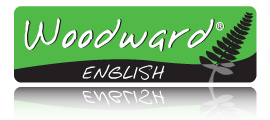What is the difference between angry WITH, angry AT and angry ABOUT in English?
Which preposition do you use after ANGRY?
The choice of preposition after the adjective ANGRY depends on the context of the sentence.
Here are prepositions used after ANGRY, each with different meanings:
Angry WITH / AT
Angry WITH: This is used when someone is upset or resentful about a specific person.
- He is angry with his colleague for not completing the project on time.
- She is angry with her brother for breaking her favorite toy.
- Jack is angry with his sister for borrowing his car without permission.
- Susan is angry with her friend for canceling their planned trip at the last moment.
Angry AT: This is similar to angry with and is also used when someone is upset with a person.
- She is angry at her friend for betraying her trust.
- I’m angry at him for lying to me.
(to betray = to act against or be disloyal to someone who trusts you, often by revealing secrets, breaking promises, or acting in a way that harms the trust or confidence placed in you.)
Angry AT / WITH someone.
Nowadays both AT and WITH are interchangeable after angry, however WITH is used more in British English and AT is used more in American English.
- I was angry AT her. (More in American English)
- I was angry WITH her. (More in British English)
Angry ABOUT
Angry ABOUT: This is used when someone is upset about a specific situation or event. It indicates that the anger is more broadly focused on the circumstances instead of a particular individual.
Angry ABOUT something.
- She is angry about the way the company treats its employees.
- He is angry about the sudden price rise of essential goods.
- They’re angry about the lack of action on climate change by world leaders.
- His parents were angry about his poor grades.
Sometimes Angry AT is also used informally when someone is upset about a situation or something but angry ABOUT is better to use in this case.
So in general you are:
- Angry AT / WITH someone.
- Angry ABOUT something.
Angry + other prepositions
Angry FOR: This is a less common phrase, but it can be used in specific contexts to convey a sense of anger or resentment on behalf of someone else. It expresses empathy and anger on behalf of someone else who has experienced injustice, mistreatment, or unfortunate circumstances.
- He is angry for his sister because she was treated so poorly.
- They were angry for the victims of the natural disaster, feeling frustrated by the slow response from authorities.
Angry OVER: This is similar to angry about and is used when someone is upset about something that happened. Angry over is used much less than angry about.
- She is angry over the way the company handled the layoffs, leaving many employees without proper support.
- He is angry over the government’s decision to cut funding for public schools, affecting the quality of education for students.
Angry with / Angry at / Angry about

